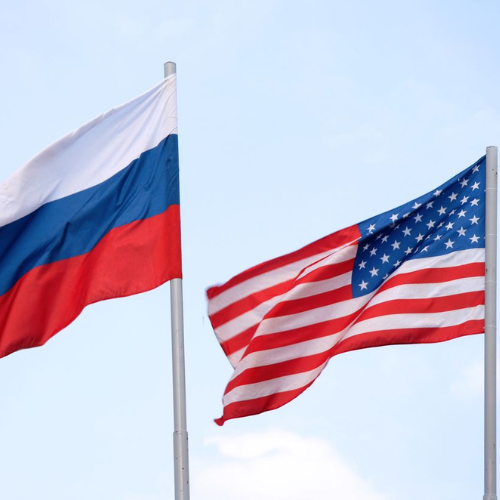The United States has imposed new sanctions on several Russian companies while unexpectedly removing restrictions on Karina Rotenberg, the wife of a well-known Russian billionaire. The U.S. Office of Foreign Assets Control (OFAC) made this announcement on April 2, revealing new measures that block the assets of three Russian businesses and ban any U.S.-related transactions with them.
The targeted companies—Edison, Kolibri Group, and Sky Frame—operate in different industries. Edison trades household appliances, Kolibri Group deals in grain and animal feed, while Sky Frame is listed as a film production company. However, according to the U.S. Treasury Department, these businesses were not operating as ordinary commercial firms. Instead, they were reportedly involved in a secret network that helped transfer raw materials, weapons, and sensitive goods from Russia to Iran-backed fighters known as the Houthis in Yemen.
The shipments, allegedly worth tens of millions of dollars, included stolen grain from areas in Ukraine occupied by Russian forces. This discovery has further strained the already tense relations between the U.S. and Russia, as Washington accuses Moscow of continuing to fuel conflicts across multiple regions. The sanctions aim to cut off financial resources to these companies, limiting their ability to engage in such activities.
US Slams Devastating Sanctions on China, UAE for Fueling Iran’s War Machines
Surprise Removal of Sanctions on Billionaire’s Wife
At the same time, the U.S. government quietly lifted sanctions on Karina Rotenberg, the wife of Boris Rotenberg, a Russian billionaire with close ties to President Vladimir Putin. Boris Rotenberg, along with his brother Arkady Rotenberg, is known for securing large government contracts in construction and banking. Both brothers have faced sanctions from the U.S. and other Western nations due to their close financial ties to the Russian government.
Karina Rotenberg had been on the U.S. sanctions list since March 2022, but the U.S. Treasury Department did not provide a reason for removing her name. This unexpected move has raised questions about the U.S. government’s decision-making process regarding sanctions. While other Russian individuals and entities continue to face strict restrictions, this removal stands out as an unusual exception.
Reports indicate that Karina Rotenberg has been a U.S. citizen since at least 2013, according to leaked documents cited by the Moscow Times. However, it remains unclear if this played a role in the decision to lift the sanctions against her.
Russia’s War Tensions and U.S. Response
The sanctions come at a time when the U.S. is pressuring Russia over its continued aggression in Ukraine. Despite multiple international efforts to negotiate peace, Moscow has shown little interest in compromise. The U.S. and Ukraine had agreed to a ceasefire on March 11, but Russia rejected the deal, only agreeing to pause certain attacks on energy infrastructure and Black Sea operations. However, Ukraine has since accused Russia of violating even these limited agreements.
US Sanctions 13 Entities Involved in Sinaloa Cartel’s Money Laundering Scheme
Meanwhile, the Houthis, the group reportedly receiving aid from the sanctioned Russian companies, have intensified their attacks in the Red Sea. The Houthis have been targeting commercial and military vessels in response to Israel’s military operations in Gaza. The U.S. has responded with airstrikes in an effort to protect regional trade routes and prevent further destabilization.
U.S. President Donald Trump, who has previously praised his relationship with Putin, took a critical stance on March 30, accusing Moscow of stalling ceasefire talks and undermining Ukrainian President Volodymyr Zelensky. Trump has also threatened additional sanctions on Russia, including tariffs on oil exports, if Putin does not agree to a deal to end the war.
While Washington continues to increase pressure on Russia with sanctions, the unexpected removal of restrictions on Karina Rotenberg remains a puzzling development. The U.S. government has yet to offer a clear explanation, leaving many to wonder about the reasoning behind this decision.
For now, the global tensions remain high, as sanctions, conflicts, and diplomatic negotiations continue to shape the ongoing crisis.


